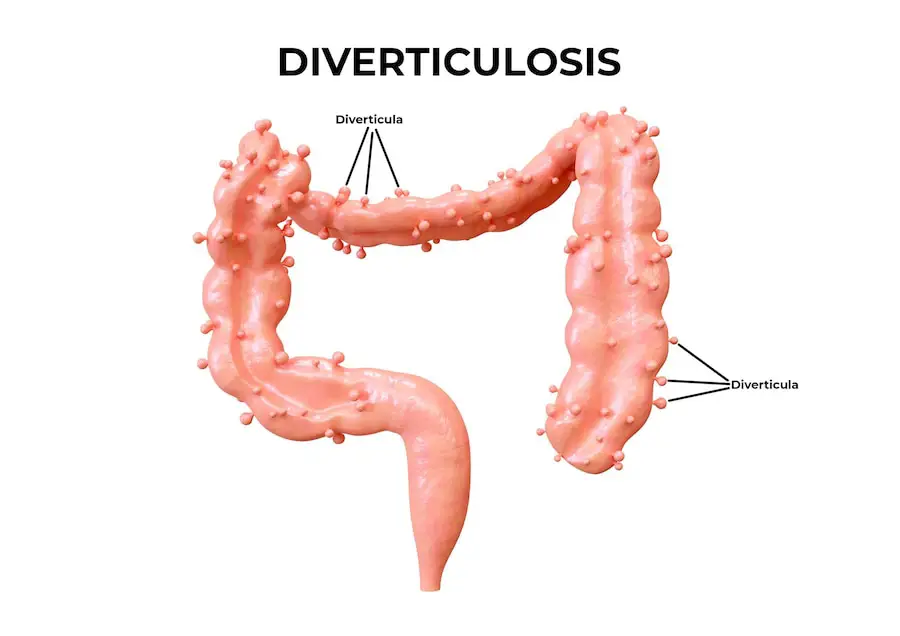Treatments
Diverticular Disease
Diverticulae are small pouches that can form in the lining of the digestive system, often in the lower part of the colon or large intestine.
They are common in people over the age of 40 and normally don’t cause any problems. However, if a diverticula becomes infected or inflamed it can cause a condition known as diverticular disease or diverticulitis. Mild cases can normally be treated with antibiotics and a change in your diet. Although, more severe cases may require hospitalisation and surgery.
Causes of Diverticular Disease
Diverticula are caused by naturally occurring weak points in your colon. These can give way under pressure causing small bulges to protrude through the colon wall. Providing these pouches do not become infected or inflamed you will not normally experience any symptoms. However, a diverticular tear can occur, leading to the development of diverticular disease.

Diverticular Disease Risk Factors Include
- Ageing – the condition is more common in older people
- Being overweight or obese
- Smoking is known to increase your risk
- Eating an unhealthy diet low in fibre and high in animal fats
- A sedentary lifestyle without much exercise
- Certain medications, including steroids, anti-inflammatories and opioids
Symptoms
Symptoms of Diverticular Disease
Common symptoms can include
Pain and tenderness
Often in the left side of the abdomen although people of Asian descent may experience pain in the right of the abdomen. The pain is usually constant lasting several days
Fever
Nausea and vomiting
Constipation or diarrhoea
Around a quarter of people with acute diverticular disease develop complications.
These may include:
- An abscess
- A blockage in the colon caused by scarring.
- A fistula, which is an abnormal passageway that develops between sections of the bowel or between the bowel and bladder.
- Peritonitis, which results from a rupture of the infected pouch spilling the contents of your colon into your abdominal cavity.
- This is a medical emergency that requires immediate treatment.
Diagnosis of Diverticular Disease
Your doctor will examine your abdomen and carry out blood and urine tests to check for signs of infection and rule out other potential causes of pain. Women of childbearing age may be given a pregnancy test and a liver enzyme test will be used to check for liver-related causes of pain. You may also be asked to do a stool test. If diverticular disease is suspected, you will be offered a CT scan, which can identify inflamed pouches and ascertain the severity of any infection.
Treatment of Diverticular Disease
The treatment you are offered will depend on your symptoms and the severity of the disease. For mild cases, your doctor may recommend:
Antibiotics to treat the infection
A liquid diet for a few days to allow you bowel time to heal
Over the counter pain relief
If the condition is more severe you may need to go into hospital where you will be given intravenous antibiotics and may need to have an abdominal abscess drained. In some cases, you may need surgery to repair a perforation in the bowel wall or a fistula. There are two types of surgery depending on the severity of the disease:
A bowel resection
This involves removing the diseased sections of your colon and reconnecting the health sections. This may be performed laparoscopically (using keyhole surgery) or using open surgery
A bowel resection with colostomy
If there is a large amount of inflammation you may be given a colostomy, which involves creating an opening in your abdomen wall (called a stoma). Waste will bypass the colon and pass through the stoma and into a bag. Once the inflammation has eased and the colon has healed, the colostomy may be reversed and the sections of the bowel reconnected

